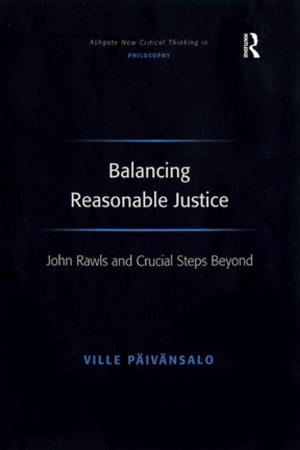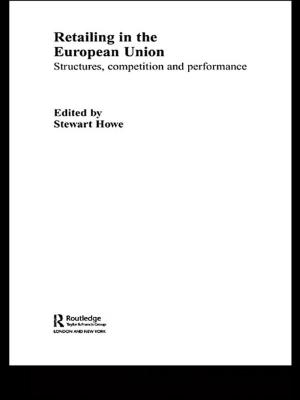The Politics of Penal Reform
Margery Fry and the Howard League
Nonfiction, Social & Cultural Studies, Social Science, Crimes & Criminals, Criminology| Author: | Anne Logan | ISBN: | 9781351708197 |
| Publisher: | Taylor and Francis | Publication: | October 30, 2017 |
| Imprint: | Routledge | Language: | English |
| Author: | Anne Logan |
| ISBN: | 9781351708197 |
| Publisher: | Taylor and Francis |
| Publication: | October 30, 2017 |
| Imprint: | Routledge |
| Language: | English |
In the context of recent media scrutiny on the state of prisons in the UK, the efficacy of incarcerating large numbers of offenders is an issue which is rising steadily up the political agenda. In 2016, the Howard League for Penal Reform – an organization that has energetically lobbied for improvements in the treatment of offenders throughout its lifetime – celebrated its 150th anniversary.
This book considers the life and work of Margery Fry, the woman who created the modern Howard League and dominated it from 1918 until her death in 1958, and places the UK’s oldest surviving penal reform pressure group and its current work into their historical context. It examines Fry’s legacy as a campaigner for an international standard of prisoners’ minimum rights, which resulted in a United Nations charter, for the introduction of compensation for victims of criminal injuries, and for the abolition of the death penalty, and also considers her role in the establishment of criminology as an academic discipline and her organization of the first criminology lectures in Great Britain. It is essential reading for all those engaged in prisons research, penal reform and criminal justice history.
In the context of recent media scrutiny on the state of prisons in the UK, the efficacy of incarcerating large numbers of offenders is an issue which is rising steadily up the political agenda. In 2016, the Howard League for Penal Reform – an organization that has energetically lobbied for improvements in the treatment of offenders throughout its lifetime – celebrated its 150th anniversary.
This book considers the life and work of Margery Fry, the woman who created the modern Howard League and dominated it from 1918 until her death in 1958, and places the UK’s oldest surviving penal reform pressure group and its current work into their historical context. It examines Fry’s legacy as a campaigner for an international standard of prisoners’ minimum rights, which resulted in a United Nations charter, for the introduction of compensation for victims of criminal injuries, and for the abolition of the death penalty, and also considers her role in the establishment of criminology as an academic discipline and her organization of the first criminology lectures in Great Britain. It is essential reading for all those engaged in prisons research, penal reform and criminal justice history.















